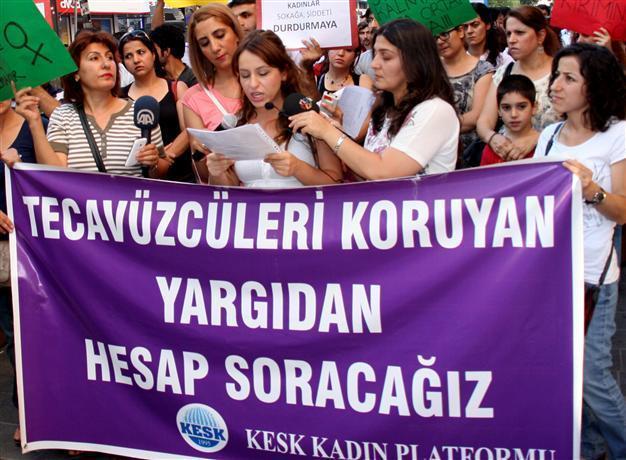Deputy PM dismisses claims chemical castration set to be introduced for sexual offenders
ISTANBUL – Anadolu Agency

The rape of a 16-year-old girl by eight soliders in the eastern Bingöl province had sparked a huge outcry last month. AA photo
Deputy Prime Minister Bekir Bozdağ has dismissed claims that a landmark draft bill on sexual abuse crimes would introduce chemical castration as a punishment for those convicted of sexual crimes, which had been circulating in news reports.Commenting on the bill that is set to increase the penalties for such crimes, Bozdağ said that the new provision foresaw “medical treatments” rather than chemical castration.
“There is a provision according to which medical treatment [will be performed] if those who commit sexual assaults or child abuse are sick,” Bozdağ told reporters.
Bozdağ compared the medical treatment of sexual abusers to the treatment of drug addicts. “Nowadays whenever there are issues that require treatment, this way is chosen. Our current legislation foresees treatment for crimes related to addictions, like drug addiction,” he said.
The government’s draft bill on sexual crimes is considered as an important step to preventing the daily abuse of women as well as social problems such as child marriages.
The bill prepared by the Justice Ministry increases the penalties for sexual abuse committed in the digital environment or through mobile phones. Additionally, parents who force their children into marriage will face between one and three years in prison under the new regulations.
As part of the new regulations, the term “incest” has entered the Turkish Penal Code for the first time. People found guilty of the crime could face between five and 12 years in prison.
As another important change of procedures, the courts will no longer seek a forensic medicine report on whether the sexual assault victim’s psychological and physical well-being has been damaged, in a move designed to prevent intrusive questioning of those subjected to such abuse.
















